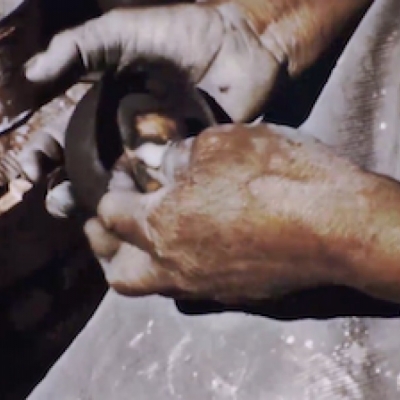
Talk on the Tribesourcing Project with Jennifer Jenkins, PhD
March 1, 20202:00 PM - 3:30 PM
“Tribesourcing is a digital humanities project, where existing "social studies" films from the American Indian Film Gallery, made in the 1950s and 1960s are re- recorded with new narrations by community members and elders from Native American communities. This “tribesourcing” method allows for identification of local knowledge that might otherwise be lost, as well as providing a rich, community-based metadata record for each film.
Jennifer Jenkins, PhD, Tribesourcing Project Manager, and English Professor at the University of Arizona, will demonstrate the merging of old video and new audio in Mukurtu at Tribesourcingfilm.com and discuss what she has learned in the process of digitally repatriating these midcentury films.”
“This NEH-funded project seeks to “tribesource” 60 educational films about the Native peoples of the Southwestern U.S. works from the American Indian Film Gallery, a collection awarded to the University of Arizona in 2011. Most of the films were made in the mid-20th century and reflect mainstream cultural attitudes of the day. Often the narration pronounces meaning that is inaccurate or disrespectful, but the visual narratives are for the most part quite remarkable. At this historical distance, many of these films have come to be understood by both cultural insiders and outside scholars as documentation of cultural practices and lifeways—and, indeed, languages—that are receding as practitioners and speakers pass on. This project seeks to rebalance the historical record, intentionally shifting emphasis from external perceptions of Native peoples to the voices, knowledge, and languages of the peoples represented in the films by participatory recording of new narrations for the films.
Tribesourcing places historical materials with the peoples they represent in order to tell the untold or suppressed story. Each film in this project will be streamed in a Mukurtu-based website with alternate narrations from within the culture in English and in Native languages. This method allows for identification of people, places, practices, vocabulary and stories that might otherwise be lost, as well as providing a rich, community-based metadata record for each film. Taking a small step toward cultural repatriation of content, tribesourcing as a methodology is guided by the Protocols for American Indian Archival Materials (2006).
This project seeks to contribute to ongoing efforts to decolonize the archive and restore voice and narrative sovereignty to the people who appear in these films—as agents of their own information rather than subjects of a governmental or corporate agenda. Participation, Equity, and Inclusion are central to this project.”
Your Event at the Museum
Considering the museum as a venue for your own event? See our facilities rental information here.
Learn More